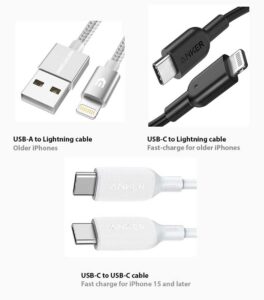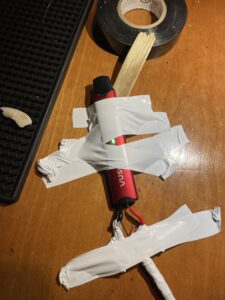“Curious about what happens to your car’s key fob after a battery replacement? Wondering if you need to go through the hassle of reprogramming it? Well, the good news is, you can breathe a sigh of relief. When it comes to the question, ‘Do I have to reprogram my fob after battery replacement?’ the short answer is no. Replacing the battery won’t require you to go through any extensive reprogramming processes. In this article, we’ll delve into the details of why your fob stays intact and ready to use even after a battery swap. So, let’s dive right in!”
Do I Have To Reprogram My Fob After Battery Replacement?
Replacing the battery in your fob is a common need for many car owners. However, a common question that arises is whether or not you need to reprogram your fob after replacing the battery. In this article, we will explore this topic in detail, addressing all the pertinent subtopics to help you understand the process and determine if reprogramming is necessary.
Understanding Keyless Entry Systems
Before we delve into the question of reprogramming, let’s start by understanding keyless entry systems and how they work. Keyless entry systems, commonly referred to as fobs, allow you to remotely lock or unlock your vehicle, as well as perform other functions such as activating the alarm system or opening the trunk.
These fobs communicate with your car’s security system through a wireless signal, which is transmitted using a specific frequency. When you press a button on the fob, it sends the corresponding signal to your car, enabling the desired action.
The Role of Fob Programming
In order for your keyless entry system to function properly, the fob needs to be programmed or synchronized with your car’s security system. During the programming process, the car and the fob establish a unique and secure communication link.
Programming ensures that only your fob can communicate with your car, preventing unauthorized access and improving overall security. This way, the car will only respond to the signals sent by your specific fob, adding an extra layer of protection.
Battery Replacement and Fob Functionality
Now that we have a basic understanding of keyless entry systems and fob programming, let’s discuss the impact of battery replacement on fob functionality. The battery inside your fob provides the power necessary for it to operate and send signals to your car.
Over time, the battery’s charge will deplete, eventually requiring replacement. When you replace the battery, it is important to ensure that the fob still functions properly, maintaining the ability to communicate with your car’s security system.
However, simply replacing the battery typically does not affect the programmed communication between the fob and the car. The programming information is usually stored in a non-volatile memory within the fob, which means it is not erased or reset during battery replacement.
When Reprogramming May Be Necessary
While most fobs do not require reprogramming after battery replacement, there are situations where reprogramming may be necessary. It is essential to consider the following factors:
- Age of the fob: Older fobs may lose their programming information when the battery is removed, requiring reprogramming. Newer fobs, on the other hand, are designed to retain programming during battery replacement.
- Manufacturer guidelines: Some car manufacturers may have specific instructions regarding fob battery replacement and reprogramming. It is always a good idea to consult your car’s manual or contact the manufacturer to determine if reprogramming is needed.
- Faulty fob: If your fob was not functioning properly even before the battery replacement, it may indicate a different issue unrelated to the battery. In such cases, reprogramming may not solve the problem, and further troubleshooting or repairs may be necessary.
Checking Fob Functionality After Battery Replacement
After replacing the battery, it is important to check if your fob still functions properly. Here are the steps to follow:
- Insert the new battery correctly into the fob according to the manufacturer’s instructions.
- Stand near your car and press each button on the fob to test the functionality. Pay attention to the response from your car, such as the locks clicking or the alarm system activating.
- If all the functions work as expected, your fob is likely still programmed correctly, and reprogramming is not necessary. However, if you notice any issues or find that the fob is no longer communicating with your car, further steps may be needed.
Reprogramming Your Fob
If you determine that reprogramming is necessary, there are a few methods you can try:
- Manual reprogramming: Some fobs have a manual reprogramming process that involves a specific sequence of button presses. Consult your car’s manual or contact the manufacturer for detailed instructions on how to manually reprogram your fob.
- Professional assistance: If you are unsure how to reprogram your fob or prefer to have it done by a professional, you can visit a dealership or an automotive locksmith. They have the necessary tools and expertise to reprogram your fob correctly.
In most cases, you do not have to reprogram your fob after battery replacement. The programming information is typically stored in the fob’s memory, ensuring that it remains intact during battery replacement. However, it is important to consider the age of your fob, follow any manufacturer guidelines, and address any pre-existing issues or faults to determine if reprogramming is necessary.
Frequently Asked Questions
Do I have to reprogram my fob after battery replacement?
After replacing the battery in your key fob, you may wonder if it needs to be reprogrammed. Here are some frequently asked questions about this topic:
How often should I replace the battery in my key fob?
The lifespan of a key fob battery can vary depending on its quality and usage. On average, it is recommended to replace the battery every 1-2 years to ensure reliable functioning.
Do I need to reprogram my key fob after replacing the battery?
In most cases, you do not need to reprogram your key fob after replacing the battery. The fob’s programming is usually stored in the vehicle’s memory, not in the fob itself. Simply replacing the battery should not affect its programming.
What should I do if my key fob stops working after battery replacement?
If your key fob becomes unresponsive after replacing the battery, there might be an issue with the fob or the battery connection. Check if the battery is properly inserted, and if the issue persists, you may need to consult a professional locksmith or the vehicle manufacturer for assistance.
Can I reprogram my key fob myself?
Reprogramming a key fob usually requires specialized equipment or knowledge that may not be readily available to the average car owner. It is recommended to seek professional help from a locksmith or contact your vehicle’s manufacturer for guidance.
Will reprogramming the key fob affect other settings in my vehicle?
Reprogramming the key fob should not affect other settings in your vehicle. The process typically focuses on resetting or syncing the fob’s signal with the vehicle’s receiver. However, it’s always a good idea to consult your vehicle’s manual or the manufacturer to ensure proper procedures are followed.
Final Thoughts
When replacing the battery in your fob, you might be wondering if reprogramming is necessary. The good news is that in most cases, you do not have to reprogram your fob after a battery replacement. The fob’s programming is typically stored in non-volatile memory and is not affected by battery removal. As long as you insert a new battery correctly, your fob should continue to work without any issues. So, the next time you replace your fob’s battery, rest assured that you won’t have to go through the hassle of reprogramming it. ‘Do I Have To Reprogram My Fob After Battery Replacement’ is a common concern, but luckily, it is usually unnecessary.




